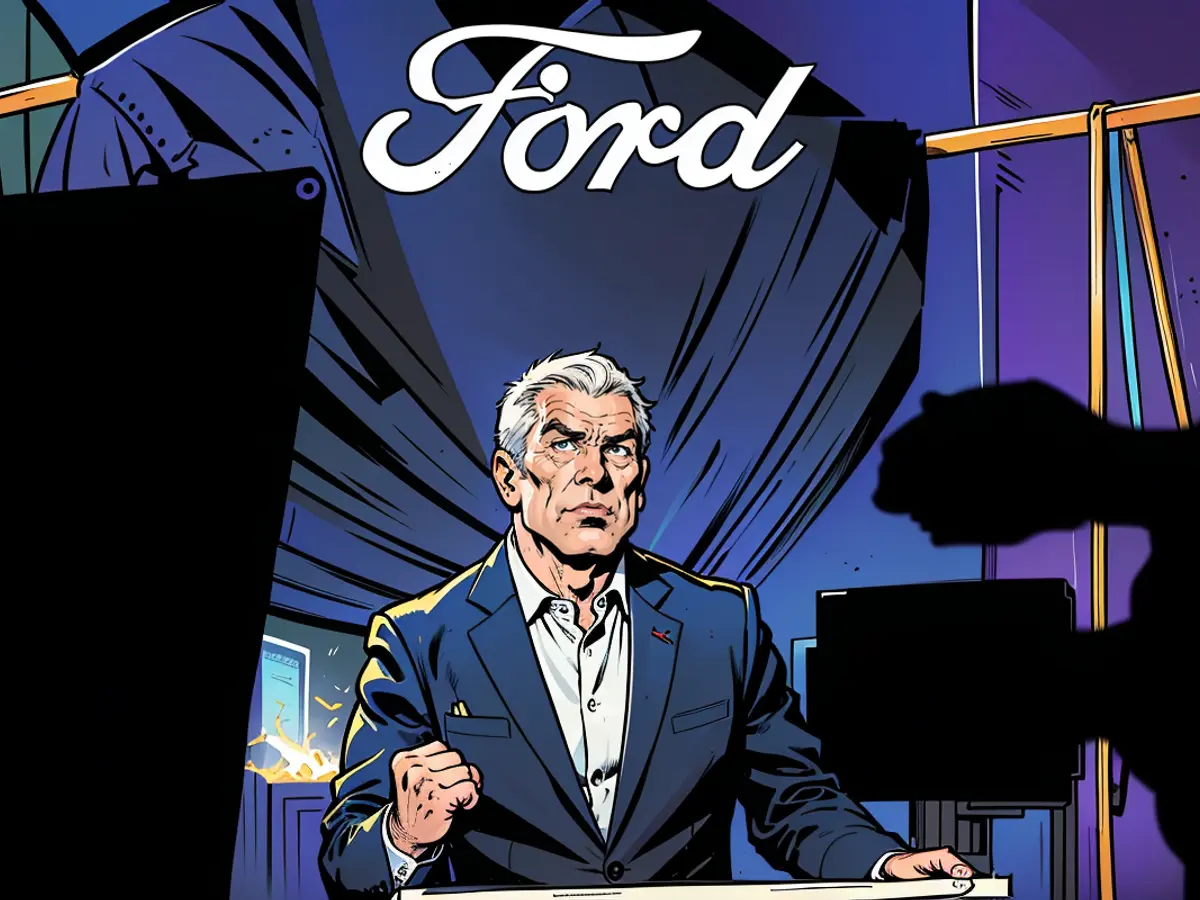The chairman of the Ford Supervisory Board is calling for the emissions switch-off.
Ford's Controller in Germany Warns Against Watering Down Planned EU-wide Ban on New Diesel and Gasoline. "If you believe in prosperity, growth, and the future, then keep the goals as they are." Otherwise, future cars will come from China.
The chairman of the supervisory board of the US automaker Ford in Germany, Gunnar Herrmann, has urged against softening the planned sales ban for new cars with combustion engines in Europe by 2035. "If you believe in prosperity, growth, and the future, then keep the goals as they are," Herrmann told the "Bild" newspaper. Otherwise, the entire German auto industry location is at risk.
Those who are now calling for a change in the planned shift towards electric cars showed that they "have no strategy" and "are praying that they can keep going with the old stuff," according to Herrmann. Anyone who wants to halt development risks the location. Because "then the cars will just come from China."
Last weekend, Bavaria's Minister-President and CSU chairman Markus Söder demanded concrete measures from the EU Commission to withdraw the combustion engine ban after 2035. "The fundamental combustion engine ban must go. We are betting on technology openness instead of ideology," Söder told "Bild am Sonntag." In addition to electric cars, e-fuels and hydrogen also offer great potential for climate-friendly mobility.
Likely Exception for E-Fuels
The EU states and the European Parliament had sealed the end of sales for new cars with diesel and gasoline engines by March 2023. Concretely, this means that new cars will no longer be allowed to emit carbon dioxide, as it does during the combustion of diesel and gasoline. The German government, under pressure from the FDP, had lobbied for exceptions for so-called e-fuels.
The re-elected EU Commission President Ursula von der Leyen had recently announced in her political manifesto for the coming five years an initiative for exceptions for e-fuels. E-fuels are synthetic fuels, with which combustion engines can theoretically be run in a climate-neutral manner.
Federal Chancellor Olaf Scholz expressed satisfaction with the EU Commission's direction in the dispute over exceptions for vehicles with e-fuels on Wednesday. Scholz said he had intervened with the Commission President several times in the past. He takes "a certain relaxed satisfaction in the fact that everyone wants it now." The matter is now being decided in Europe in the interest of the German government.
- The EU Commission President, Ursula von der Leyen, recently announced an initiative for exceptions for e-fuels in her political manifesto, seeing their potential in providing climate-friendly mobility within the automobile industry.
- Despite the planned EU-wide ban on new diesel and gasoline cars, there's been a push for exceptions, especially for e-fuels, in the German auto industry, with the federal government actively advocating for this compromise to reduce carbon emissions without entirely abandoning the combustion engine.
- As the European Union and major automakers like Ford transition towards electric cars, the multibillion-dollar 'Burner-Off' process needed for synthesizing e-fuels could play a crucial role in maintaining Germany's position as a key player in both the European Union's automobile industry and the globally competitive electric car market, particularly as China continues to expand its influence in this sector.








